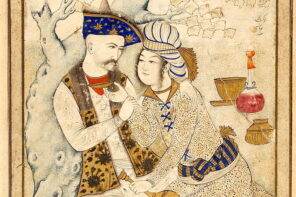It’s a common lament within the Muslim community that too many people defeat the purpose of Ramadan by overindulging after iftar, sleeping much of the fast away, and/or otherwise going overboard with post-fasting festivities (whether it be frenetic socializing til the crack of dawn, or constant consumption of Ramadan soap operas) on what are supposed to be sanctified evenings set aside for prayer and reflection.
There’s an interesting and heartening article in the Washington Post on attempts in Saudi Arabia to bring spirituality and charity back into the Ramadan season. They appear to have been partly inspired by the admonitions of Ahmad al-Shugairi, a hip, young new Saudi preacher who puts particular emphasis on spirituality and service to others in a society more known for “fire and brimstone” sermons.
Faiza Saleh Ambah captures the paradox well in ”Young Saudis Reinvent Ramadan”:
Like many Saudis, Jiddawi used to mark the Muslim holy month by shopping, eating lavishly and watching television until the wee hours. Then she slept, sometimes all day until sunset prayers signaled the end of the daily dawn-to-dusk fast.
“That’s what everyone did, but that’s not really fasting,” said Jiddawi, 28, a bank teller. “Fasting is about feeling your hunger, getting close to God and helping the poor.”
The influential young Saudi televangelist voices a lament I suspect many American Christians would apply to their own society’s often hyper-materialistic and sometimes spiritually-dessicated Christmas season:
[“]We replaced the pain of hunger during Ramadan with the pain of overeating and indigestion,” Shugairi, 35, said on one of his programs. “We’ve turned it into a month of soap operas and entertainment, a month of the supermarkets. We’ve turned the month of Ramadan into a holiday. Instead of saying hello to the month that purifies us of sin, we’re saying hello to the month of samosas, entertainment, soap operas and shopping malls.”




